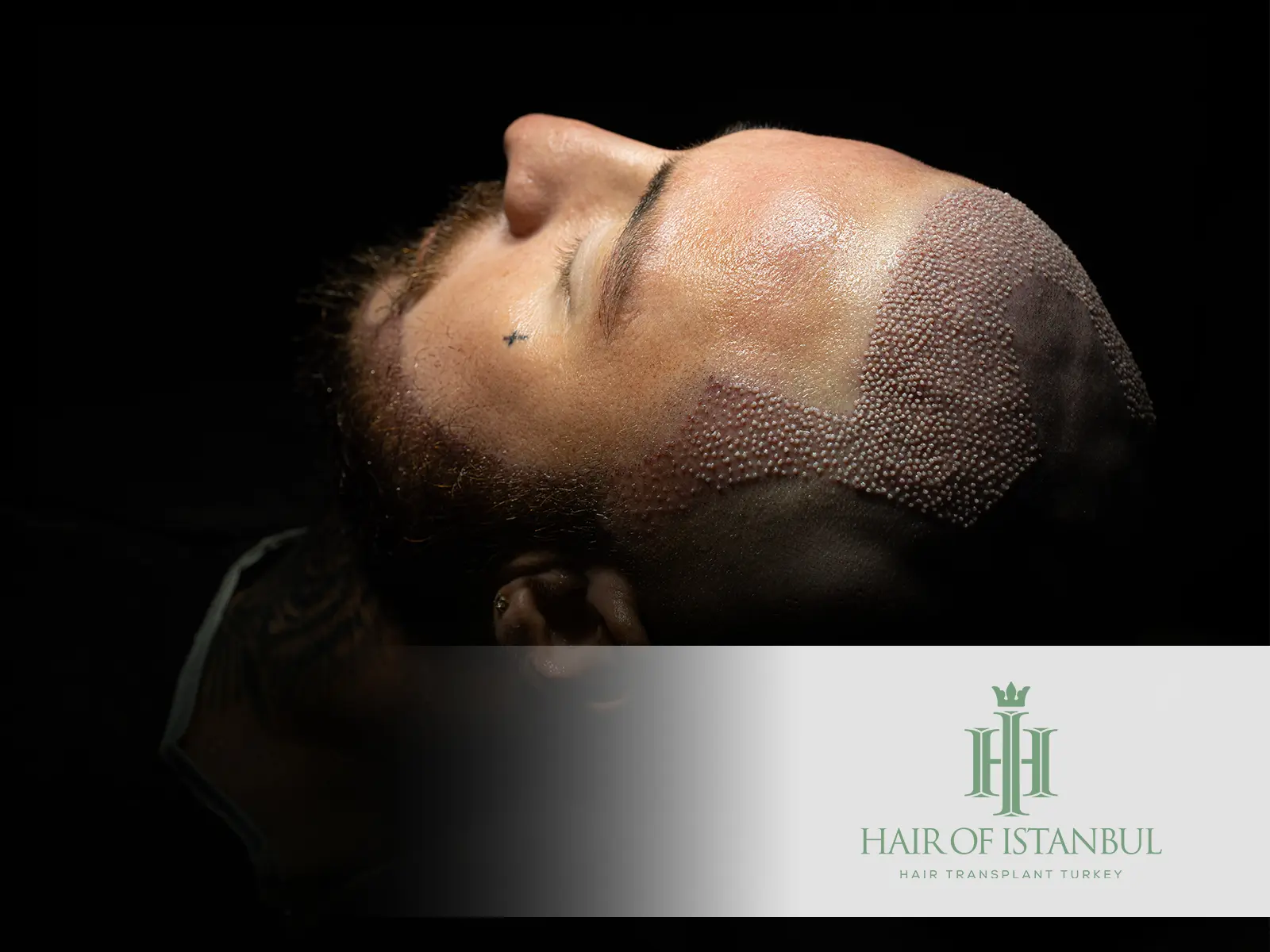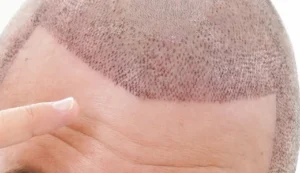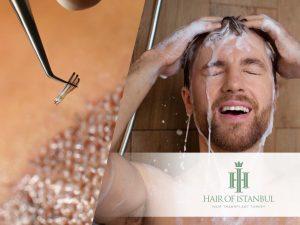
After Hair Transplant Scalp Hygiene: The Foundation for Healthy Recovery
Maintaining proper after hair transplant scalp hygiene is one of the most critical factors determining the success of your procedure. A clean and protected scalp ensures that grafts settle securely, reduces the risk of infection, and promotes faster healing. While modern hair transplantation methods like FUE and DHI minimize trauma, post-operative care remains a shared responsibility between the surgeon and the patient. In this guide, we explain how to safely clean, protect, and care for your scalp during each phase of recovery. Results vary by individual.
Why Scalp Hygiene Matters After Hair Transplant
In the first two weeks following surgery, your scalp is in its most sensitive state. During this period, the tiny incisions created during follicle implantation can become entry points for bacteria if not properly maintained. Good after hair transplant scalp hygiene prevents infection, controls inflammation, and keeps the area oxygenated — all of which are essential for graft survival. Additionally, gentle washing removes dried blood and crusts that could block follicles if left unattended.
Day-by-Day Scalp Hygiene Timeline
| Recovery Phase | What Happens | Hygiene Instructions |
|---|---|---|
| Days 1–3 | Scalp is swollen and sensitive | Do not wash directly. Keep scalp dry. Use saline spray every 2–3 hours to keep grafts hydrated. |
| Days 4–7 | Scabs begin to form | Start gentle washing with medical shampoo diluted in warm water. Pour softly with a cup — no rubbing or shower pressure. |
| Days 8–14 | Healing accelerates | Continue daily washing; lightly massage with fingertips if advised. Avoid scratching or nail contact. |
| After 2 Weeks | Crusts fall off, follicles settle | Resume normal washing but avoid harsh shampoos, hot water, or chemical treatments for another 2–3 weeks. |
Choosing The Right Shampoo and Cleaning Products
During after hair transplant scalp hygiene, product choice matters as much as technique. Always use a mild, sulfate-free, and fragrance-free medical shampoo recommended by your clinic. Ingredients such as panthenol or aloe vera can soothe irritation and help maintain moisture. Avoid anti-dandruff shampoos, alcohol-based tonics, or any product containing menthol or parabens until your doctor approves them.
- Recommended: Medical foam shampoo, baby shampoo, or clinic-provided care set.
- Avoid: Hair gels, waxes, sprays, or perfumed oils in the first month.

Kerastase Aftercare Product
Washing Technique for Optimal Hygiene
Improper washing is one of the main reasons for graft dislodgement. Follow these steps for safe, effective cleaning during your after hair transplant scalp hygiene routine:
- Prepare a bowl of lukewarm water and mix it with a small amount of shampoo to create foam.
- Gently pour the foam over the transplanted area using your palm or a cup.
- Wait for 3–5 minutes to allow the solution to soften crusts.
- Rinse gently with a cup of clean water — never use shower pressure directly on the grafts.
- Pat dry carefully with a soft, disposable paper towel — do not rub with fabric towels.
This process ensures that the scalp remains clean without harming the newly implanted follicles. Remember: cleanliness promotes oxygenation, which accelerates healing and stimulates new growth.
How to Handle Scabs and Crusts
Scab formation is part of the natural healing process. However, aggressive attempts to remove crusts early can damage grafts. During after hair transplant scalp hygiene care, scabs should soften gradually through gentle washing and hydration. By day 10–14, most crusts will fall off on their own. If some persist, your surgeon may recommend gentle fingertip massages using circular motions and medical shampoo to loosen them safely.

Avoiding Infections and Irritation
To maintain ideal after hair transplant scalp hygiene, avoid touching the scalp unnecessarily, especially with unwashed hands. Change your pillowcase daily during the first week and sleep with your head elevated to reduce swelling. Avoid wearing hats unless approved by your surgeon, as poor ventilation can trap moisture and bacteria. If you notice redness, excessive pain, or pus formation, contact your clinic immediately — these may indicate infection requiring antibiotics.
Environmental and Lifestyle Factors
Your environment directly affects your scalp hygiene. Protect the treated area from dust, pollution, and direct sunlight. Avoid gyms, saunas, and swimming pools for at least 3–4 weeks, as sweat and chlorine can compromise wound healing. When outdoors, wear a loose, breathable cap only after your doctor confirms it’s safe. Smoking and alcohol should also be avoided for at least 10 days, as both slow circulation and delay healing.
After Hair Transplant Scalp Hygiene at Hair Of Istanbul
At Hair Of Istanbul, post-operative care is an integral part of every treatment plan. Patients receive a comprehensive after hair transplant scalp hygiene kit that includes medical shampoo, foam cleanser, and a detailed washing guide. Our medical team provides daily follow-up and remote check-ins via photos to ensure every patient’s scalp heals properly. We believe that clean scalp care is as important as surgical precision — both define long-term success.
Key Takeaways
- Cleanliness ensures graft survival and reduces infection risk.
- Use mild, clinic-approved shampoo; avoid chemicals and hot water.
- Follow the day-by-day washing protocol; never scratch or rub the scalp.
- Protect the scalp from sweat, dust, and sunlight during recovery.
- After hair transplant scalp hygiene is the foundation of healthy, natural results.

Frequently Asked Questions
When can I start washing my hair?
You can begin gentle washing between day 3 and day 5, as instructed by your surgeon.
Can I use my regular shampoo?
No. Only use medical or baby shampoo recommended by your clinic during the first month.
Is it normal to see crusts or flakes?
Yes. Crusts form naturally as the skin heals. They should fall off gradually after 10–14 days with proper washing.
When can I return to the gym?
Usually after 3–4 weeks, depending on your healing progress. Excess sweat can affect scalp hygiene early on.
What happens if I accidentally touch or bump the grafts?
Don’t panic. Minor contact rarely causes harm, but report any bleeding or dislodgement to your doctor immediately.
Conclusion
Proper after hair transplant scalp hygiene is not just a recommendation — it’s a requirement for lasting, natural outcomes. Clean, gentle care prevents infection, keeps grafts stable, and accelerates recovery. By following your clinic’s protocol and maintaining daily discipline, you ensure that every follicle has the best chance to grow strong and healthy. Results vary by individual.
References
- American Academy of Dermatology (AAD). Post-Transplant Hair Care Guidelines, 2024.
- British Association of Hair Restoration Surgery (BAHRS). Patient Aftercare Protocols, 2023.
- National Institutes of Health (NIH). After hair transplant scalp hygiene, 2022.
Free Consultation
Get Your Free 5-Minute Assessment: Contact Hair Of Istanbul to receive a personalized aftercare plan, including detailed after hair transplant scalp hygiene instructions for your specific case. No obligation complete transparency.
Disclaimer
- This article is for educational purposes only and does not replace medical advice.
- Results vary by individual; always follow your doctor’s personalized aftercare instructions.
 en
en TR
TR  SK
SK  ITA
ITA  FR
FR  DE
DE  ES
ES  BG
BG